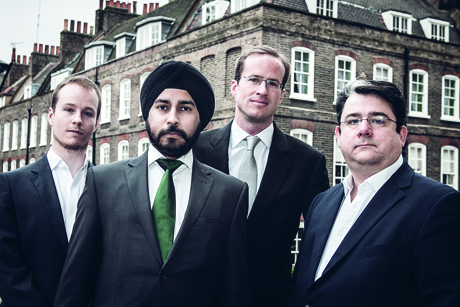Thus being a referendum no-one wanted and weren't convinced completely by the alternative it had a very significant in-built status quo effect. First Past the Post is easy to explain, AV was less so.
No wonder then the "Yes! To Fairer Votes" campaign lost. Yet despite these inherent advantages the No2AV brand chose to adopt what some might call dubious tactics to try to win an un-loseable referendum, tactics which encountered much criticism:
Unsurprisingly as a consequence Elliott did not emerge at the time with much credit. Campaign posters were understandably dismissed as scaremongering, lies and inaccurate. Indeed a number of complaints were made to the Advertising Standards Authority regarding a number of No2AV adverts.
Observing the poster above, as an example, it's not difficult to understand why the complaints were made. The distinct impression put forward by the No2AV campaign was that either we vote against AV or the "baby gets it". In addition to the somewhat crass imagery on the poster, further concerns were expressed that the costs highlighted was less than accurate.
Blogger Sunny Hundal not unreasonably noted that the £250 million figure used was "deeply dishonest". The figure was not AV as a system but calculated "from the £150m price of electronic machines to count votes cast under the AV system, plus the £82m cost of holding the referendum and a further £20m-plus expense of publicity campaigns to explain AV if the voting system is changed". It misrepresented the cost of AV as a system once implemented.
Elliott seemingly made such a shambles of the campaign he had to essentially be bailed out by senior Conservatives in order to rescue the campaign.
But astonishingly in contrast to historical analysis he has subsequently been described as a “campaigning genius”, and by himself as the "best campaigner in a generation" a reflection possibly on his ability to play the "Westminster bubble game" rather effectively.
What's interesting is the AV referendum showed up a lack of regulatory oversight regarding referendum campaigns. Complaints over political adverts to the Advertising Standards Authority (ASA) are dismissed as a matter for the Electoral Commission, But the Electoral Commission considers any referendum advertising complaints as a matter for the ASA as it only deals with political parties.
This allows an unregulated grey area when it comes to online referendum advertisements, which can be exploited by any group which can refuse to reveal who is backing it and by how much.
And it's with this in mind regarding an EU referendum we note more serious concerns with Elliott who has demonstrated such overt moves to try to be designated as the official "Leave" campaigner by the Electoral Commission .
Aside from the previous sheer incompetence of his AV campaign we also note that the AV referendum campaign gives us a vivid indication of how an Elliott campaign could turn out where the result appears less than important. We worry that via close relationships between companies Elliott could use an EU referendum campaign to try to benefit himself and his friends financially.
When Elliott was designated by the Electoral Commission for the No2AV campaign, with apparently little competition for the bid from other campaigners, it becomes very interesting that Jag Singh, a shareholder in WESS Digital was appointed Director of Digital Communications of the No2AV campaign.
This would be the same Jag Singh who is the sole director of Strateusis Limited which is registered in Hong Kong and was a shareholder in WESS Digital via Strateusis Limited.
We also see that MessageSpace, co-founded by Guido Fawkes aka Paul Staines was awarded a contract by being a so-called "Digital Agency" in the 2011 AV referendum:
And interestingly Singh tweeted during the AV campaign
How strange that the biggest one day blitz regarding online advertising happened to involve MessageSpace which is a company where Singh is an investor...a man who happened to be the Digital Director of the No2AV campaign.
These have been concerns which have been expressed before. With Jag Singh a self professed digital expert the EU referendum if nothing else will allow him to establish an enormous client database which could be useful to the Conservative party who may able to use such data for political advantages reasons in the 2020 general election. A large database clearly has potential financial benefits as well as political ones:
“There is a lot of opportunity to be increasingly clever,” says Andrew Whitehurst [sole Director] of WESS, a London-based firm that runs digital campaigns for all three major UK parties. The election’s outcome could result in even more data mining. The Conservatives have promised a referendum on whether the UK should stay in the European Union – a nationwide, binary choice much closer to a presidential election, which should make US techniques easier to import. "Winning elections nowadays is not really about convincing people, it’s about mobilising people,” says Whitehurst.And:
Having accurate records makes campaigning three times more efficient, says Thomas Borwick, founder of Kanto Systems. “In a perfect system you have the right person knock on the right door, who has something in common with the voter, can engage them in a conversation and make sure they go to the polling station.”Thus do we see self interest in terms of party politics at work at the expense of trying to honestly win a referendum?
Deeper concerns come about when we scrutinise the accounts submitted to the Electoral Commission regarding the AV referendum in 2011.
More to follow...


























